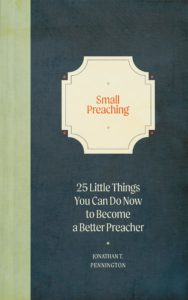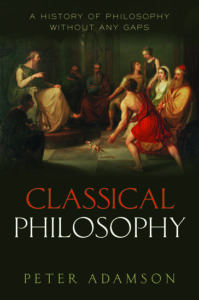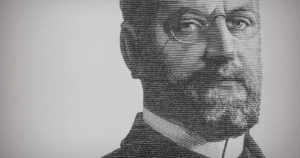
Author’s Corner: Theology, Preaching, and Classical Philosophy
Each week on Credo we welcome you to join us in the Author’s Corner where we will meet a set of authors whose recent books deserve your attention and might even help you grow in your knowledge of theology, history, philosophy, and the scriptures. We hope the Author’s Corner can keep you up-to-date on the most important books published today and where you can find them.
On today’s Author’s Corner we present you with a selection of works from T&T Clark, Lexham, and Oxford University Press.
G od, Evil and the Limits of Theology (T&T Clark, 2020) by Karen Kilby
od, Evil and the Limits of Theology (T&T Clark, 2020) by Karen Kilby
Karen Kilby explores the doctrine of the Trinity and issues of evil, suffering and sin. She offers a critique of the lack of respect for mystery found in the most popular Trinitarian thinking of our time. Kilby gives an apophatic reading of Aquinas on the Trinity and offers a distinct next step in the sequence on the Trinity – the appeal of social doctrines of the Trinity lies principally in their ecclesial and political relevance. She engages with Miroslav Volf’s famous ‘The Trinity is our social program’ essay and addresses the question of what an alternative politics of an apophatic theology of the Trinity might look like.
The essays explore the question of theodicy and argue that evil poses a question to Christians and Christian’s theology which can neither be answered nor dismissed. Kilby argues that Christians must live with this mystery, this lack of resolution, rather than trying to diminish the gravity of evil, or allowing evil to dictate their conception of God’s goodness or power. By offering a critical reading of Hans Urs von Balthasar and Julian of Norwich she explores the question of whether Christianity can avoid giving a positive valuation to suffering, and concludes the two represent two different strands within the Christian tradition in relation to thought on suffering.
S mall Preaching: 25 Little Things You Can Do Now to Make You a Better Preacher (Lexham, 2021) by Jonathan T. Pennington
mall Preaching: 25 Little Things You Can Do Now to Make You a Better Preacher (Lexham, 2021) by Jonathan T. Pennington
Is bigger always better?
It’s not often that we hear the virtues of the small. Our culture teaches that bigger is better—and that includes church ministry and preaching, too. But what if rather than swinging for the fences, preachers focused on improving their sermons through small habits, practices, and exercises? What if smaller is better?
In a world where “small” isn’t always celebrated, Jonathan T. Pennington provides Small Preaching, a short book of simple tips that can have revolutionary effects over time. Pennington offers preachers 25 words of wisdom that will help shape their preaching for the better.
C lassical Philosophy: A history of philosophy without any gaps, Volume 1 (Oxford, 2014) by Peter Adamson
lassical Philosophy: A history of philosophy without any gaps, Volume 1 (Oxford, 2014) by Peter Adamson
Classical Philosophy is the first of a series of books in which Peter Adamson aims ultimately to present a complete history of philosophy, more thoroughly but also more enjoyably than ever before. In short, lively chapters, based on the popular History of Philosophy podcast, he offers an accessible, humorous, and detailed look at the emergence of philosophy with the Presocratics, the probing questions of Socrates, and the first full flowering of philosophy with the dialogues of Plato and the treatises of Aristotle. The story is told “without any gaps,” discussing not only such major figures but also less commonly discussed topics like the Hippocratic Corpus, the Platonic Academy, and the role of women in ancient philosophy. Within the thought of Plato and Aristotle, the reader will find in-depth introductions to major works, such as the Republic and the Nicomachean Ethics, which are treated in detail that is unusual in an introduction to ancient philosophy. Adamson looks at fascinating but less frequently read Platonic dialogues like the Charmides and Cratylus, and Aristotle’s ideas in zoology and poetics. This full coverage allows him to tackle ancient discussions in all areas of philosophy, including epistemology, metaphysics, philosophy of language, philosophy of science, ethics and politics. Attention is also given to the historical and literary context of classical philosophy, with exploration of how early Greek cosmology responded to the poets Homer and Hesiod, how Socrates was presented by the comic playwright Aristophanes and the historian Xenophon, and how events in Greek history may have influenced Plato’s thought. This is a new kind of history which will bring philosophy to life for all readers, including those coming to the subject for the first time.

